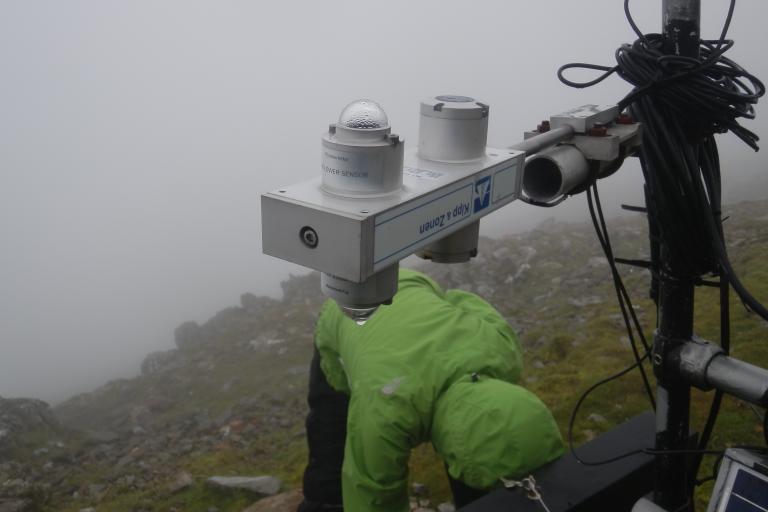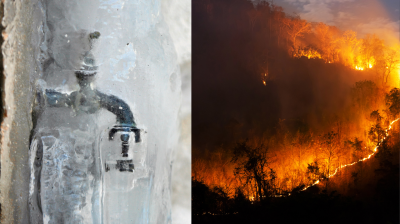Closing the gaps in the observing network

Despite rapid technological progress in an era of supercomputers, satellites and Artificial Intelligence, big gaps remain in basic observations which support weather forecasts and climate monitoring. Without these basic observations, all that technology is flying blind.
Seeking to remedy the situation, the WMO Commission for Observation, Infrastructure and Information Systems (INFCOM) approved a resolution on the importance of the Global Basic Observing Network (GBON). It gave a ringing endorsement to the Systematic Observation Financing Facility (SOFF), which provides grant funding for the collection of weather and climate data, with a focus on Least Developed Countries and Small Island Developing States.
GBON aims to improve the availability of essential surface-based observational data. This in turn enhances the quality of weather forecasts not just in the country concerned, but also at global level, given the global and interconnected nature of weather.
Local weather forecasts depend on access to 24/7 global observations. But there are big geographical gaps – in some parts of the world (especially Africa, parts of Latin America and Asia, and over the ocean areas of small island states), observations are either not made or not exchanged internationally, and in other parts they are not made or exchanged frequently enough. This limits the collective ability to understand and predict the atmosphere at all time scales.
Thus as an example, Germany has more GBON complaint observing stations than the whole of the African continent.
The need to redress the balance has been given new urgency by the global Early Warnings For All initiative, which seeks to ensure that everyone is protected by life-saving early warnings by the end of 2027.
“The development of the Global Basic Observation Network (GBON) and, in parallel, the development of the Systematic Observation Financing Facility (SOFF), are great achievements in today’s challenging landscape. On the one hand, they define what is scientifically and operationally needed, while at the same time designing a mechanism to allow developing countries to close the gaps,” said WMO Secretary-General Celeste Saulo.
The INFCOM-3 session also decided to develop a roadmap for expansion of the technical regulations for GBON, with a phased expansion of the network over time to meet greater global needs for weather and climate information.
Systematic Observations Financing Facility
SOFF provides grant financing and technical assistance for the sustained collection and international exchange of surface-based weather and climate observations. It focuses on countries with the most severe shortfalls in observations, namely Least Developed Countries and Small Island Developing States.
A side event during the five-day INFCOM session provided a detailed overview of progress in rolling out GBON and the expanding role of SOFF, which opened for business in June 2022 and is UN Multi-Partner Trust Fund created by WMO, the UN Environment Programme and the United Nations Development Programme (UNDP).
Up to now, US$79 million in donor pledges has transformed into legally binding commitments to the SOFF fund from 12 donors Austria, Belgium, Canada, Denmark, Finland, Iceland, Ireland, Kingdom of the Netherlands, Nordic Development Fund, Norway, Spain and the United States of America).
However, an additional US$120 million is needed by June 2025 to correspond to immediate country demand and fill the gaps already identified, said Estelle Grueter, Chair, Standing Committee on Earth Observing Systems and Monitoring Networks.
“SOFF has been incredibly dynamic and has been able to take off thanks to the support of initial 12 funders but now needs to urgently mobilize additional resources to keep up with country demand,” she said.
SOFF promotes regional approaches and engagement. It has mobilized the work of 20 Members as peer advisors which twin with beneficiary countries.
More than 60 countries are already programmed to receive SOFF support – and more have requested it. All 30 countries identified as an initial priority by the Early Warnings for All initiative are included in this.
Eleven countries have had investment funding approved: Kiribati, Maldives, Rwanda, Mozambique, Belize, South Sudan, Tanzania, Solomon Islands, Bhutan, Cabo Verde and Ethiopia.
Together they represent 20% of the GBON Gap for land surface stations in LDCs and SIDs and 18% of the GBON Gap for upper air stations. The initial scope of SOFF financing is focused on surface and upper-air GBON land stations. However, the INFCOM resolution recommended that consideration be given to expanding SOFF support to marine surface stations in national Exclusive Economic Zones.









